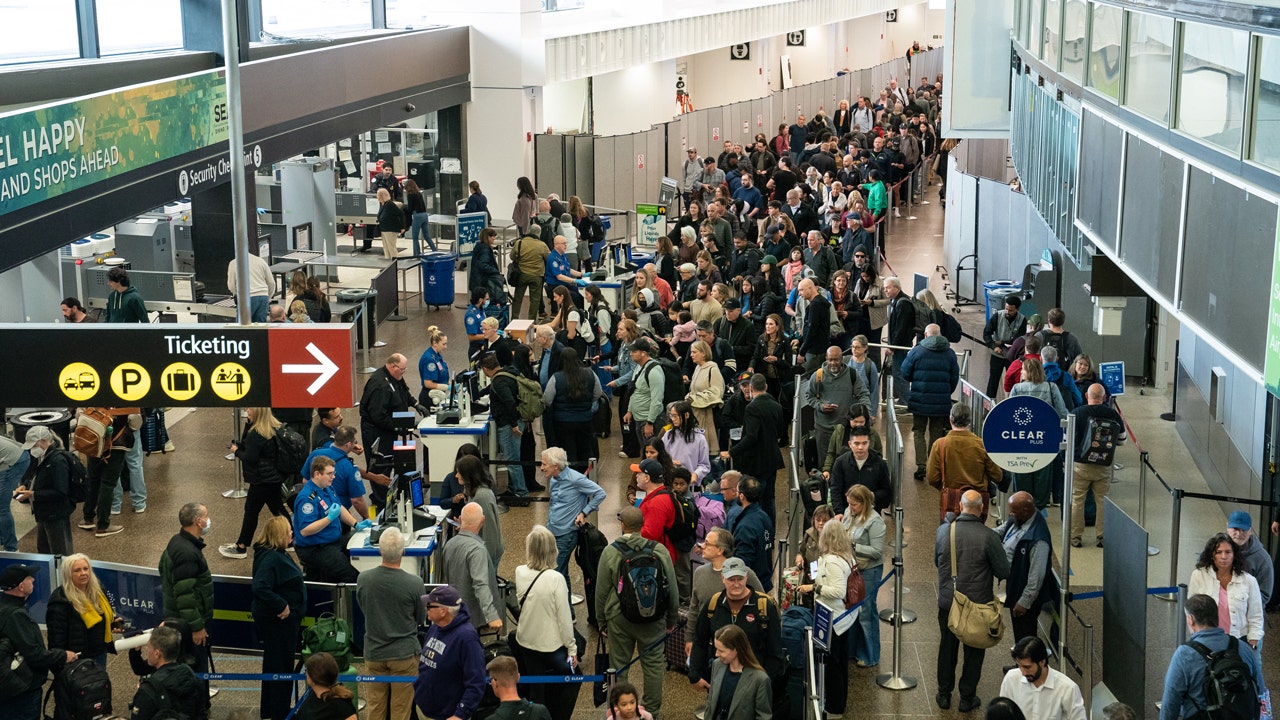APPLETON, Wis. — As a prolonged government shutdown continues to disrupt essential services across the United States, air travelers are facing widespread flight disruptions at some of the nation's busiest airports. The Federal Aviation Administration has announced a 10% reduction in flights at 40 major hubs, a move that could strand thousands of passengers and lead to significant delays. This development, stemming from staffing shortages and operational constraints caused by the shutdown, affects approximately 70% of all U.S. air travel, according to reports from aviation experts.
The cuts, which began this week, are expected to result in thousands of cancellations, equating to about 200,000 fewer seats available per day. Major airports such as Hartsfield-Jackson Atlanta International, Los Angeles International, New York's John F. Kennedy International, and Chicago O'Hare International are among the hardest hit. These facilities handle a substantial portion of domestic and international flights, meaning the ripple effects could extend to smaller regional airports and connecting routes nationwide.
Brian Kelly, founder of the travel advice site The Points Guy, has been vocal about the challenges facing travelers amid these disruptions. In a recent segment shared on Fox News, Kelly offered practical tips for navigating what he described as a potential 'flightmare.' He emphasized the importance of proactive planning, urging passengers to monitor their itineraries closely and consider alternative travel options.
According to the Fox News report, Kelly advised Americans to 'keep checking, stay flexible and treat your travel like you’d treat a storm warning: Get ahead of it, not behind it.' This sentiment underscores the unpredictability of the situation, as the shutdown—now in its record-long duration—has led to reduced staffing at key agencies like the FAA and the Transportation Security Administration (TSA).
The TSA has also weighed in on the mounting issues, warning that the shutdown's impact on airports will only worsen. In a statement highlighted in the report, TSA officials recommended that travelers 'go early' and 'be patient' when heading to the airport. This advice comes as security lines have lengthened at locations like Seattle-Tacoma International Airport, where photos from November 6, 2025, showed crowds navigating checkpoints amid the chaos.
Visual accounts from various airports paint a vivid picture of the disruptions. At Newark Liberty International Airport in New Jersey, a traveler was photographed waiting with luggage on November 7, 2025, as delays mounted. Similarly, at Denver International Airport on the same day, passengers were seen descending escalators after clearing security, with reports indicating increased wait times and frustration among those affected.
The government shutdown, which has shuttered non-essential federal operations, has particularly strained aviation safety and security personnel. Without funding, many employees are working without pay or have called out, leading to the FAA's decision to scale back operations for safety reasons. This isn't the first time a shutdown has impacted air travel; similar issues arose during the 2018-2019 shutdown, which lasted 35 days and caused widespread delays, though experts note this current impasse has already surpassed that record.
Airlines have responded by advising passengers to book backup tickets or consider rebooking on alternative flights. A Fox News headline captured the severity: 'FLIGHT CHAOS GRIPS US AIRPORTS AS SOME AIRLINES ADVISE BOOKING 'BACKUP TICKET': SEE THE LIST.' This list includes major carriers operating out of the affected airports, with some recommending passengers arrive hours earlier than usual to account for potential cancellations.
For those unwilling or unable to fly, alternative transportation options are gaining appeal. With national average gas prices hovering around $3.08 per gallon—a notable decrease from recent highs—road trips are being touted as a viable substitute. Kelly and other travel experts suggest evaluating driving distances, especially for shorter domestic trips, to avoid the uncertainty of air travel.
Don’t wait. Don’t assume. Keep checking, stay flexible and treat your travel like you’d treat a storm warning: Get ahead of it, not behind it,Kelly reiterated in the Fox News piece, encouraging travelers to download airline apps for real-time updates and notifications.
While the primary focus remains on the 40 busiest airports, the interconnected nature of the U.S. aviation system means even remote locations could feel the strain. For instance, a flight originating in a smaller city like Appleton, Wisconsin, might connect through Chicago O'Hare, amplifying the risk of delays or cancellations. Local travelers here in Appleton have reported checking their holiday plans obsessively, with some opting to drive to destinations in nearby states rather than risk being grounded.
The broader implications of these disruptions extend beyond individual inconveniences. The travel industry, still recovering from the effects of the COVID-19 pandemic, faces potential economic losses from reduced bookings and canceled trips. Tourism-dependent regions, particularly during the holiday season, could see a dip in visitors, affecting hotels, restaurants, and local economies. Analysts estimate that the daily loss of 200,000 seats could translate to millions in revenue shortfalls for airlines and related sectors.
Looking ahead, resolution of the shutdown remains uncertain, with congressional negotiations stalled over budget disputes. If the impasse continues, further flight reductions could be implemented, potentially escalating to 20% cuts at some hubs, according to unconfirmed reports from industry insiders. Travelers are advised to stay informed through official channels, such as the FAA's website or airline alerts, and to consider travel insurance that covers shutdown-related disruptions.
In the meantime, sharing information has become a grassroots effort to mitigate the fallout. The Fox News article encouraged readers to 'pass this on: Know someone flying soon? Don’t leave them grounded. Forward this post before they end up sleeping in an airport chair with their neck at a 90-degree angle.' Such community-driven advice highlights the human element of the crisis, as families and friends rally to support one another during this turbulent period.
As the situation evolves, aviation authorities and airlines continue to monitor developments closely. With no immediate end to the shutdown in sight, passengers are urged to remain vigilant and adaptable, ensuring that their travel plans don't become another casualty of Washington's gridlock.
